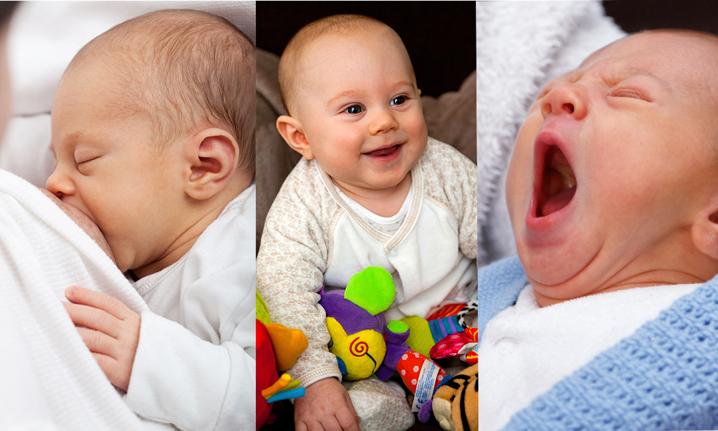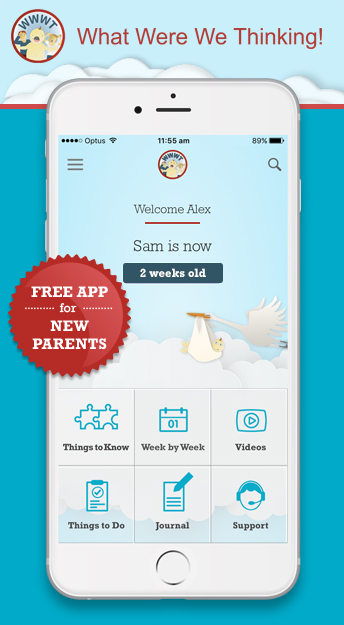The Feed-Play-Sleep routine
By Jane Fisher

Some of the questions I am asked most often in my work at residential early parenting services are about what routines of daily care are and why are they important.
What are feed play sleep routines?
‘Feed play sleep’ is a way to care for your baby that meets their needs for food, play time and sleep. The foundation of this pattern is that babies are fed when they wake and then have a play period, which might include enjoyable interactions with others, or exploring or playing with a toy or household object. When they show tired cues, like rubbing their eyes or yawning or becoming irritable it is time to follow a pattern the baby is used to, which might include wrapping a little baby, or putting an older baby in a sleeping bag and then putting the baby to bed for a sleep. These patterns are adjusted with age, but follow the same general pattern throughout infancy.
Why are feed play sleep routines important?
Babies grow and flourish when their needs are well met, and they thrive when they know what to expect. We know that when parents follow a feed play sleep routine of daily care their babies cry and fuss less and are easier to care for when they are awake. When parents are under-slept because they are awake to care for the baby very frequently overnight and have no daytime rest, they are less able to concentrate, make decisions or plan and organize and are more likely to be irritable, agitated and downhearted.
What happens if we don’t follow a feed play sleep routine with our baby?
When babies are born, parents are encouraged to ‘feed on demand’. At the beginning of life it is a good idea to offer a feed when the baby wakes up or cries. As the baby grows, this can lead us to think that every cry means that the baby is hungry. This can lead to frequent short feeds interspersed with short naps. If babies do not have enough sleep they can become irritable, and under-slept babies are less likely to feed well and grow. We are not usually told when ‘feed on demand’ should be replaced with a pattern where feeds are separated by periods of play and enough sleep.
What happens if one of us wants to follow the feed play sleep routine, but the baby’s other parent does not want to?
Parents have to talk about many practical aspects of life together once they have a baby that did not need to be discussed before. It can feel silly to be discussing who does which household tasks now there is a baby depending on you, but learning to do this without arguing and in ways that feel fair is very important for the baby’s wellbeing. It is not good for your baby to see arguments between parents and they feel safe when their parents speak respectfully and are affectionate and kind to each other. It can be difficult to agree on routines, but this is when your baby’s wellbeing should be held in mind. Sometimes for example, the parent whose hours of employment mean that they are home after the baby is due to go to bed and they want to see and play with the baby. This then leads to the baby being over-stimulated, tired and difficult to settle and to an argument between parents. It is important to remember that a baby is not an object of entertainment, and that babies benefit when their needs are put ahead of either parent’s preferences or wishes.
Jane Fisher is Clinical and Health Psychologist and Professor of Women's Health. She has been a sessional consultant to Masada Private Hospital Mother Baby Unit since 1996. Jane's research focuses on understanding and addressing the factors that influence women's and men's health and wellbeing during pregnancy and the life phase of caring for young children.
Posted in: Crying settling sleeping Every baby is different Growth and development Parenting Experts








